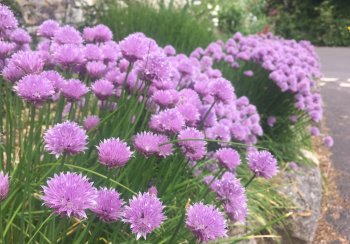
The JLAF (Joint Local Access Forum) is a statutory forum and was set up by the three council; B&NES, Bristol and South Glos. Its members are appointed by the Councils as per the Countryside and Rights of Way Act 2000. There are up to 21 members of the JLAF, one councillor nominated by each Council (Bath & North East Somerset Council, Bristol City Council and South Gloucestershire Council) and other members forming a balance of ‘landowning’, ‘user’ and ‘other’ interests. JLAF members are appointed as individuals, but some also have a role in an interested organisation such as the Ramblers Association or the Country Land & Business Association. They sit on the JLAF as individuals and are not tied to the official views of any organisations they might be involved in.
JLAF Members are volunteers. The councils will reimburse the reasonable expenses of travel, sustenance and the care of dependents that members incur in attending meetings or for other previously agreed expenditure.
The JLAF provides independent advice, through the consensus of the members. In the legislation: “to provide advice as to the improvement of public access to land in the area… for the purposes of open-air recreation and enjoyment of the area.” The JLAF were involved as statutory consultees for the Rights of Way Improvement Plan (ROWIP). They have also advised on Access Land and other matters. Forums perform a statutory function and bodies they advise are required to “have regard, in carrying out their functions, to any relevant advice given to them” by a forum. ‘Having regard’ means that although not bound to follow such advice, bodies are legally required to take it into account in carrying out their functions [taken from government guidance].
The government have issued guidance on Local Access Forums, and there is also a members’ handbook, referenced below. An extract on the role of JLAF members appears at the foot of this note.
The JLAF currently meets as a full group three times a year. These meetings are held on a Friday afternoon and last two hours.
Minutes of all JLAF meetings are on these webpages; these will give a flavour of the subjects the JLAF considers. As well as the business of preparing for, attending and following up JLAF meetings, members can get involved between meetings in working groups or through discussion in correspondence about consultations or contributions. There have been occasional site visits made by JLAF members. The meeting dates and membership of these working groups are generally arranged at the full meetings.
Kathy Thomas is the Chair and Donald MacIntrye is the Vice-Chair; these two position are responsible for the running of the JLAF. Graeme Stark is the Secretary of the JLAF and is responsible for administrative functions. The JLAF’s main contact is with the Public Rights of Way teams and management in each council, but also with other individuals and organisations as appropriate.
This extract, from guidance, outlines the role of JLAF members:
“5.1 Forum Members
5.1.1 The role of forum members is to attend forum meetings and to contribute constructively to the advisory role of the forum by:-
• sharing (and developing) experience, knowledge, skills and opinions;
• valuing the contribution of other forum members, respecting minority views, engaging in constructive debate and seeking consensus where possible;
• adopting an inclusive approach to improvement of access, which reflects local circumstances and the needs of all sections of society;
• taking account of the needs of integrated land management, and of environmental, social, economic and educational interests;
• engaging with the interests which they represent (and others) to explain and promote the work of the forum;
• operating within the requirements of the law (e.g. section 94 of the CROW Act and the Regulations) and locally-set conditions of appointment or Standing Orders; and
• having regard to Guidance issued by the Secretary of State.
5.1.2 It is hoped that forum members will - on a personal level - find it a fulfilling, satisfying and enjoyable experience, in the knowledge that they are helping to improve public access and the quality of life for local people, as well as by personally developing new insights, skills or friendships.”
Government guidance is on the internet here.
